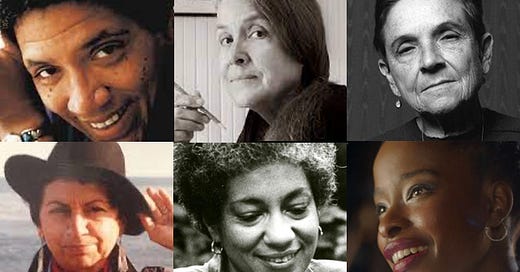Ken is a friend with whom I shared a love of poetry, and he introduced me to his favorite poets including Wisława Szymborska, Robert Pinsky, and Jack Gilbert. In ways sometimes planned, sometimes spontaneous, we took turns reading works by our favorite poets out loud, often reading a second time to better absorb them. We didn’t analyze the poem afterward, but we did pull out phrases and stanzas that resonated most deeply for us.
Poetry helps us understand ourselves and the world around us. Unlike everyday or literal language, it aims to point beyond the facts, to meaning beyond the words. Its language is more immediate, serving as a conduit to the unconscious mind and the body, bypassing analytical thought and seeking more direct ways of knowing. Poetry at-its-best uses language freed from constraints, and listening to or reading it invites us to perceive and process in ways less hindered by the limiting habits of mind.
When we read or listen to poetry, we sometimes discover things in surprising ways, and these discoveries can impact us outside our conscious awareness.
The poet Audrey Lorde said: “It is through poetry that we give names to those ideas that are, until the poem is written, nameless and formless.”
Joy Harjo describes the impact of poetry on her: “When I began to listen to poetry, it’s when I began to listen to the stones, and I began to listen to what the clouds had to say, and I began to listen to others. And I think, most importantly for all of us, then you begin to learn to listen to the soul, the soul of yourself in here, which is also the soul of everyone else.”
Poetry, read collectively, builds connections between people because we are sharing an experience in which we are connecting to ourselves. In our communities, reading poems together is a meaningful ritual, where we can talk about what the poem means to us or simply listen together without putting words to our internal experience.
Rituals within our communities help us express our yearnings and pain, and connect us to something larger than our own personal concerns, as important as they may be. Reading poetry as a shared ritual is an effective way to connect us to meaning beyond words, where we can bond over our shared humanity.
Ken eventually moved with his wife, Lorena, from Brooklyn, New York to Maine, and our friendship organically ebbed. Though the shared ritual of reading poetry left an indelible impression on both of us.
Feel free to offer a poem that is meaningful to you in the comments section!
Poems to Share
Below are five poems to share with others or to listen to in solitude. I’ve chosen beloved female poets, most of whom are known for their social activist messages. Their poems speak of both connection and separateness, many layers of identity, and where we need to go to become a more whole and healthy human family.

Audre Lorde (1934-1992) was a writer, professor, and civil rights activist who described herself as “black, lesbian, feminist, socialist, mother, warrior, and poet.” Her poems spoke of the many layers of selfhood and the internal tensions arising from that, as well as the differences between people.
“There is No Hierarchy of Oppressions” by Audre Lorde, read by Lauren Lyons.
Naomi Shihab Nye (1952- ) is a poet and novelist who first began writing poetry as a young child. Born to a Palestinian father who had been a refugee and an American mother of European descent, and growing up in Texas and Israel, Nye’s experience of different cultures influences much of her work. (There is a brief advertisement before the poem begins!)
“Separation Wall” by Naomi Shihab Nye, read by the poet.
Adrienne Rich (1929-2012), whose writing spanned nearly seven decades, was a highly influential poet and essayist and respected feminist thinker who was critical of rigid forms of identities. She spoke out against racism, homophobia, and misogyny within the university system and society in general.
“Dedication” by Adrienne Rich, read by the poet.
Gloria Evangelina Anzaldúa (1942-2004) was a scholar of Chicana feminism, cultural theory, and queer theory. She was known for her writing on marginal, inbetween, and mixed cultures that develop along borders, particularly the Mexico-Texas border. Her essays are foundational in the growing field of Latinx studies.
“To Live in the Borderlands” by Gloria Anzaldúa, read by Nancy Rodriguez.
June Jordan (1936-2002) was a Jamaican American poet, playwright, and essayist committed throughout her life to human rights and political activism. Jordan’s work is known for its interest in identity and the representation of personal, lived experience. She imagined a radical notion of solidarity among the world’s marginalized.
“Poem for a Young Poet” by June Jordan, read by the poet.
Amanda Gorman (1998- ) is a poet whose work focuses on issues of connection, race, oppression, love, and courage. She was the youngest inaugural poet in U.S. history, reading at the inauguration of Joe Biden.
“Gathering Place” by Amanda Gorman, read by the poet.






